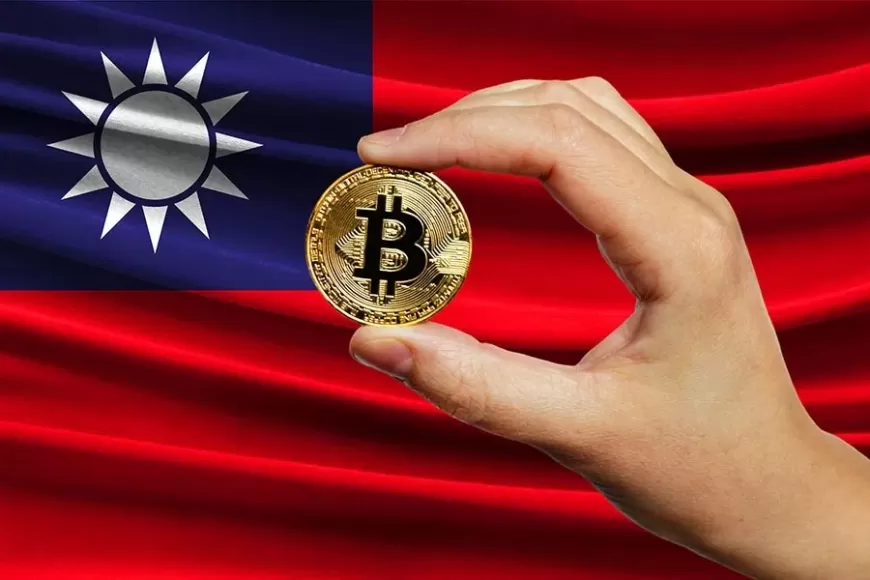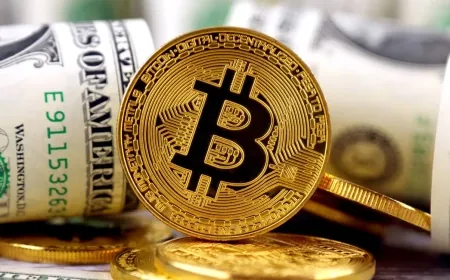Taiwan Sets New Anti-Money Laundering Rules for Crypto Companies, Compliance Required by 2025
Taiwan introduces new anti-money laundering rules for crypto firms, with compliance required by 2025 to enhance security and align with traditional financial standards

Taiwan is taking significant steps to regulate its cryptocurrency industry with the introduction of new anti-money laundering (AML) regulations. Announced by Taiwan’s Financial Supervisory Commission (FSC), the new rules will apply to all virtual asset service providers (VASPs) and are set to take effect on January 1, 2025. Crypto firms will have until September 2025 to fully comply with these updated AML registration requirements.
These new guidelines are designed to address the growing concerns about money laundering and illicit activities within the crypto space. Taiwan's regulators are ramping up efforts to ensure that the digital finance sector meets the same level of scrutiny as traditional banking institutions. Non-compliance with the new regulations carries hefty penalties, including potential imprisonment of up to two years and fines of up to NT$5 million (approximately $155,900). This move underscores the government’s commitment to creating a safer, more transparent financial environment for digital assets.
New Compliance Standards for Crypto Firms
The stricter AML regulations represent a shift in Taiwan’s approach to cryptocurrency oversight. The FSC’s latest announcement follows amendments to financial laws made in July, requiring all crypto service providers to register for AML compliance—regardless of whether they have met earlier requirements. This change replaces the previous rules that were introduced in 2021 and raises the bar for compliance significantly.
According to Kevin Cheng, a leading crypto lawyer and secretary general of the Taiwan Fintech Association, businesses failing to meet these new standards could face serious legal consequences. He explained that even compliant operators will now be subject to more rigorous requirements, closely mirroring the obligations faced by traditional financial institutions. These updates are expected to reshape the operational landscape for crypto firms, bringing about greater accountability and transparency within the industry.
The updated regulations include new qualifications for management teams and place a stronger focus on corporate responsibilities, such as enhancing transaction security and safeguarding customer assets. These measures aim to build trust within the cryptocurrency space, which has historically struggled with issues related to security breaches and fraud.
Upcoming Legal Changes for Taiwan's Crypto Firms
In addition to the AML requirements, Taiwan’s FSC is working on a specific law for cryptocurrency assets. This new legislation is expected to be submitted to the Executive Yuan by June 2025, with a draft proposal anticipated to be completed by the end of this year. The proposed law is part of a broader effort to modernize Taiwan’s financial regulatory framework, offering clearer guidelines for the growing crypto sector.
As Taiwan’s crypto market expands, the new regulations are likely to pave the way for more institutional investments. By enforcing stricter compliance measures, Taiwan is positioning itself as a more attractive destination for larger financial players who have been hesitant to enter the relatively volatile and unregulated crypto space.
In response to these upcoming changes, Taiwan’s crypto industry has also begun to organize itself. In June, local firms formed a self-regulatory association aimed at creating internal rules in line with the government’s evolving guidelines. This association will help streamline compliance processes and ensure that local players are prepared to meet the new standards once they come into effect.
What the New Rules Mean for Taiwan’s Crypto Industry
Taiwan’s decision to tighten AML regulations reflects a broader trend seen across global markets, where governments are increasingly focused on regulating digital currencies. Countries like the United States, Japan, and the European Union have already introduced robust measures to curb illicit activities in the crypto industry. Taiwan’s move aligns it with this international push for better oversight, enhancing the legitimacy of its growing digital finance market.
For the local crypto community, these changes represent both a challenge and an opportunity. While stricter regulations will undoubtedly increase the cost of compliance for some firms, they are also likely to attract a more stable and secure investor base. As global regulations evolve, Taiwan’s proactive approach could make it a regional leader in crypto governance, fostering a more sustainable and secure market.
Also Read: Bitcoin's Next Move: Could Bitcoin Hit $100,000 by End of 2024?































































